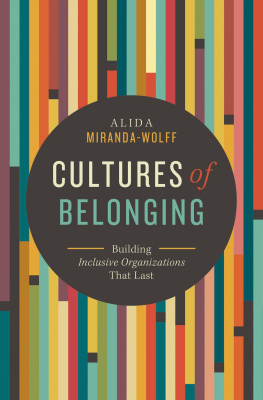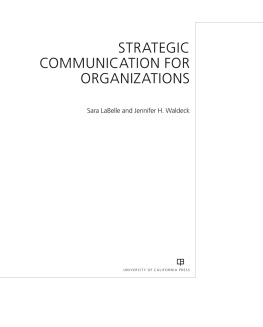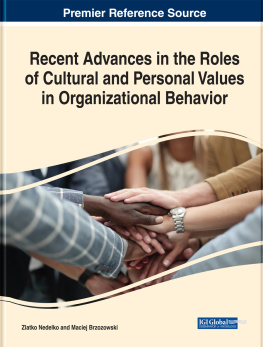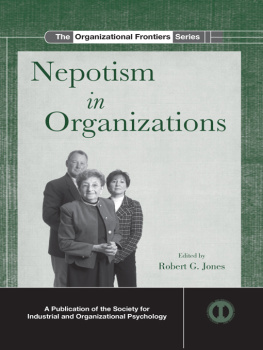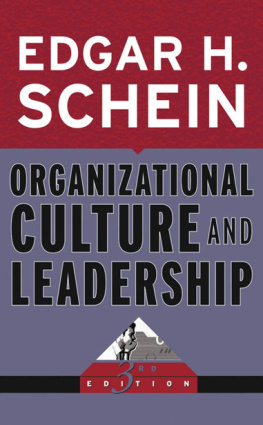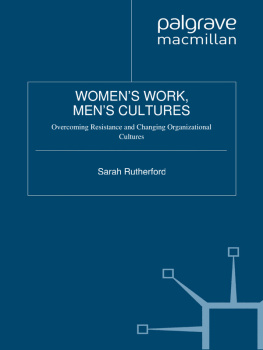Cultures in Organizations
CULTURES IN
ORGANIZATIONS
Three Perspectives
JOANNE MARTIN

Oxford University Press
Oxford New York Toronto
Delhi Bombay Calcutta Madras Karachi
Kuala Lumpur Singapore Hong Kong Tokyo
Nairobi Dar es Salaam Cape Town
Melbourne Auckland
and associated companies in
Berlin Ibadan
Copyright 1992 by Oxford University Press, Inc.
Published by Oxford University Press, Inc.,
198 Madison Avenue, New York, New York 10016-4314
Oxford is a registered trademark of Oxford University Press
All rights reserved. No part of this publication may be reproduced,
stored in a retrieval system, or transmitted, in any form or by any means,
electronic, mechanical, photocopying, recording, or otherwise,
without the prior permission of Oxford University Press.
ISBN 978-0-19-507164-1
Library of Congress Cataloging-in-Publication Data
Martin, Joanne
Cultures in organizations : three perspectives /
by Joanne Martin.
p. cm. Includes bibliographical references and index.
1. Corporate culture.
HD58.7.M374 1992 302.35dc20 926607
Quotations from Organizational Culture, edited by P. Frost, L. Moore,
M. Louis, C. Lundberg, and J. Martin,
are reprinted by permission of Sage Publications, Inc.
Quotations from Reframing Organizational Culture, edited by P. Frost,
L. Moore, M. Louis, C. Lunberg, and J. Martin,
are reprinted by permission of Sage Publications, Inc.
Quotations from Sexual/Textual Politics, by Toril Moi,
are reprinted by permission of Methuen and Co.
Printed in the United States of America
on acid-free paper
Preface
The last decade has brought a renaissance of interest in cultural phenomena in organizations. In addition to the proliferation of popular books on the topic, scholars from a variety of disciplines (including anthropology, psychology, sociology, and organizational behavior) have produced a range of theoretical and empirical studies. Perhaps because of the epistemological, methodological, and political orientations that distinguish these disciplines, this literature remains theoretically unintegratedin a state of conceptual chaos. This is not theoretical hairsplitting, a problem of importance only to ivory-tower scholars. Without some sense of theoretical consolidation, practitioners will find it difficult to draw on organizational culture research as a source of useful ideas.
Researchers cannot agree about some fundamental issues: What is culture in an organizational context? Are cultures necessarily characterized by conflicts and contradictions? Is ambiguity an indicator of the absence of culture, or is it the essence of any adequate contemporary cultural portrait? How do cultures change? To what extent can, and should, the cultural change process be influenced by those who hold power and those who dissent? How how can we write about cultures in a way that acknowledges the complexities and uncertainties inherent in any such study?
Given this conceptual chaos, it is no wonder that researchers adopt simplifying theoretical perspectives, fail to appreciate (or even read) research conducted within other perspectives, and argue about incommensurabilities. This book consolidates a diverse array of theoretical and empirical studies into an analytic framework that clarifies and challenges the assumptions that have guided studies of cultures in organizations. Without this kind of theoretical framework, organizational culture research may become, to cite some metaphors offered by critics, an intellectual dead end, a ghetto for softheads, or last years fad.
This book delineates three competing perspectives that researchers use to understand cultures in organizations. It offers a way out of the conceptual chaos caused by conflicts among these three perspectives. This resolution acknowledges and tries to bridge incommensurabilities, without denying their importance, while offering insights unavailable to any single perspective. The book also brings an integrative, interdisciplinary perspective to the study of cultures in organizations, exploring links to major developments (such as environmental dependence and postmodernism) within and outside of organizational theory. By delineating and trying to bridge these different approaches to the understanding of cultures in organizations, this text offers a breadth that might be otherwise unavailable.
The books abstract, theoretical focus is leavened with the analysis of many specific examples. In order to ground the abstract concepts that are the focus of the three-perspective framework, each theoretical perspective is illustrated with a qualitative case study of the cultures at the OZ Companya large, multinational electronics corporation. The book alternates between presentations of the OZCO material and theoretical discussions that draw on quantitative and qualitative studies conducted by a variety of scholars in a variety of organizational settings, including Peace Corps/Africa, university settings, small nonprofit organizations, and a number of large and small private-sector companies. The inclusion of summaries and excerpts of this research gives the books theoretical arguments a solid empirical base. It also, hopefully, makes it more interesting to read.
The book is written for an audience composed primarily of faculty and students in various kinds of management and organizational study departments. These would include organizational behavior, policy and strategy, and some psychology and sociology groups located both in traditional social science disciplines and in professional schools that focus on business, education, and public administration. In addition, the audience might include faculty and students in other departments that are beginning to include consideration of cultures in organizations, such as political science, anthropology, accounting, and information systems. Some managers might alsohopefullybe interested.
The book could serve as a text in organizational courses (broadly defined) at the graduate or advanced undergraduate level and could also be used in more specialized courses that include cultural issues. It can serve as a main text or as one of two or three major texts in a course. M.B.A. and undergraduate courses might find it helpful to begin by reading the four short chapters that focus on the OZCO case material (). Whatever way it is read, it is my hope that this book will stimulate and structure a lively dialogue among researchers, faculty, students, and managers.
Stanford, Calif. | J. M. |
February 1992 |
Acknowledgments
This book has been a long time in gestation, and my debts are many. I would particularly like to thank those who were kind enough to give me page-by-page comments on this entire manuscript. I owe the biggest debt to Debra Meyerson, who worked with me on the OZCO case, the Fragmentation perspective, and the development of a three-perspective view of cultural change. Her wit, gentle persistence, and intelligence have been a joy. Her comments on the first draft of this book were insightful enough to add quite a few months to the process of revision. Paul DiMaggio warned me of the perils of postmodernism and accentuated issues of power and conflict. Peter Frost thinned the ranks of unnecessary apologies and unclear ideas, adding an innovative twist whenever possible. Ed Schein was the finest of criticsdisagreeing with me vehemently, cogently, and openly. In addition, I have had help and advice regarding the three-perspective framework from many colleagues, not all of whom approve of it, including Herb Addison, Howard Aldrich, Steve Barley, Jan Beyer, John S. Brown, Marta Calas, John Carroll, Richard Daft, Lex Donaldson, Richard Dunford, Peter Frost, Pasquale Gagliardi, Sylvia Gherardi, Michael Owen Jones, Meryl Louis, Craig Lundberg, Anne Miner, Larry Moore, Bill Ouchi, Chick Perrow, Lou Pondy, Majken Schultz, Linda Smircich, Harry Trice, Andy Van de Ven, and John Van Maanen.
Next page

